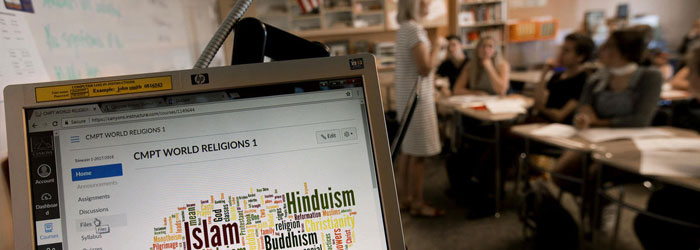A growing number of teachers and educators are pushing for religious literacy lessons in public schools. The teachers assert that it is crucial for children to be taught about major world faiths because this knowledge helps eliminate stereotypes and prejudices, and teaches children how to engage in potentially contentious discussions in a thoughtful and civil way. Additionally, in an increasingly connected global society, knowledge of religious beliefs and practices is now considered fundamental information necessary for successfully understanding and navigating the world. As Diane Moore, founder and director of Harvard Divinity School’s Religious Literacy Project, says, “It’s pretty difficult to see how you can understand anything about contemporary human affairs without understanding their religious dimensions.”

